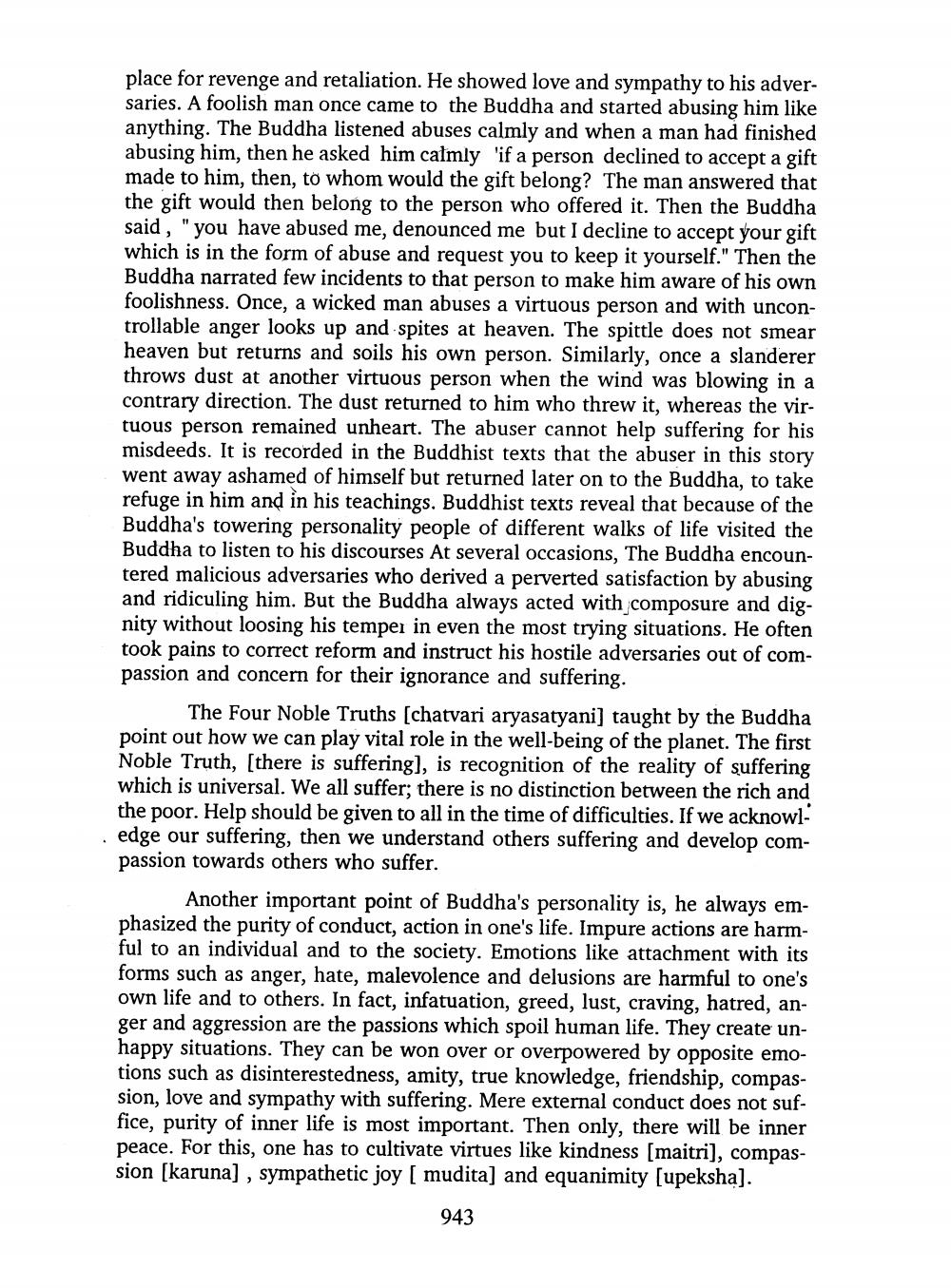________________
place for revenge and retaliation. He showed love and sympathy to his adversaries. A foolish man once came to the Buddha and started abusing him like anything. The Buddha listened abuses calmly and when a man had finished abusing him, then he asked him calmly 'if a person declined to accept a gift made to him, then, to whom would the gift belong? The man answered that the gift would then belong to the person who offered it. Then the Buddha said, "you have abused me, denounced me but I decline to accept your gift which is in the form of abuse and request you to keep it yourself." Then the Buddha narrated few incidents to that person to make him aware of his own foolishness. Once, a wicked man abuses a virtuous person and with uncontrollable anger looks up and spites at heaven. The spittle does not smear heaven but returns and soils his own person. Similarly, once a slanderer throws dust at another virtuous person when the wind was blowing in a contrary direction. The dust returned to him who threw it, whereas the virtuous person remained unheart. The abuser cannot help suffering for his misdeeds. It is recorded in the Buddhist texts that the abuser in this story went away ashamed of himself but returned later on to the Buddha, to take refuge in him and in his teachings. Buddhist texts reveal that because of the Buddha's towering personality people of different walks of life visited the Buddha to listen to his discourses At several occasions, The Buddha encountered malicious adversaries who derived a perverted satisfaction by abusing and ridiculing him. But the Buddha always acted with composure and dig. nity without loosing his temper in even the most trying situations. He often took pains to correct reform and instruct his hostile adversaries out of compassion and concern for their ignorance and suffering.
The Four Noble Truths (chatvari aryasatyani] taught by the Buddha point out how we can play vital role in the well-being of the planet. The first Noble Truth, [there is suffering], is recognition of the reality of suffering which is universal. We all suffer; there is no distinction between the rich and the poor. Help should be given to all in the time of difficulties. If we acknowledge our suffering, then we understand others suffering and develop compassion towards others who suffer.
Another important point of Buddha's personality is, he always emphasized the purity of conduct, action in one's life. Impure actions are harmful to an individual and to the society. Emotions like attachment with its forms such as anger, hate, malevolence and delusions are harmful to one's own life and to others. In fact, infatuation, greed, lust, craving, hatred, anger and aggression are the passions which spoil human life. They create unhappy situations. They can be won over or overpowered by opposite emotions such as disinterestedness, amity, true knowledge, friendship, compassion, love and sympathy with suffering. Mere external conduct does not suffice, purity of inner life is most important. Then only, there will be inner peace. For this, one has to cultivate virtues like kindness (maitri], compassion [karuna), sympathetic joy ( mudita] and equanimity (upeksha).
943




